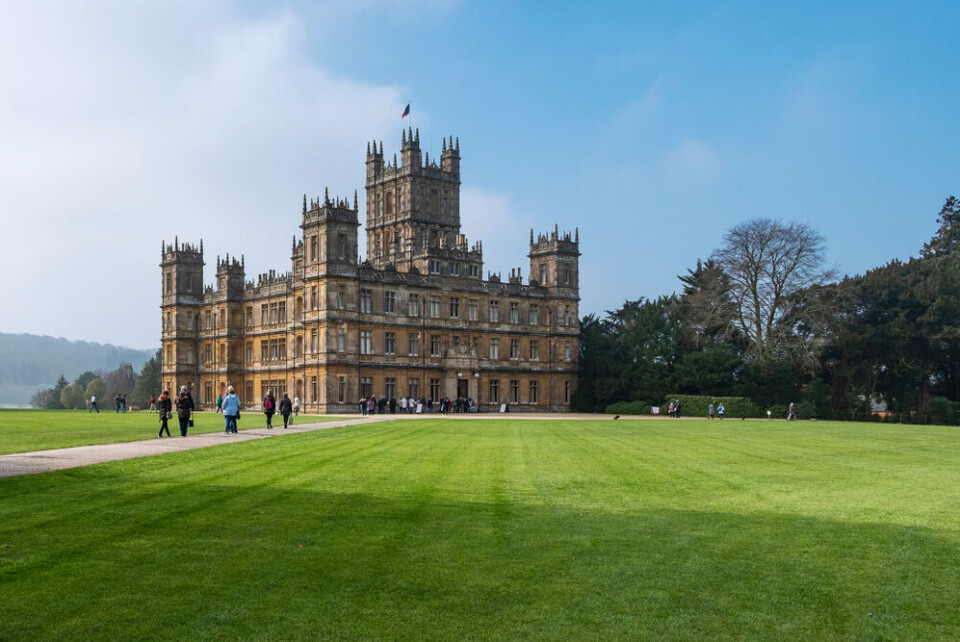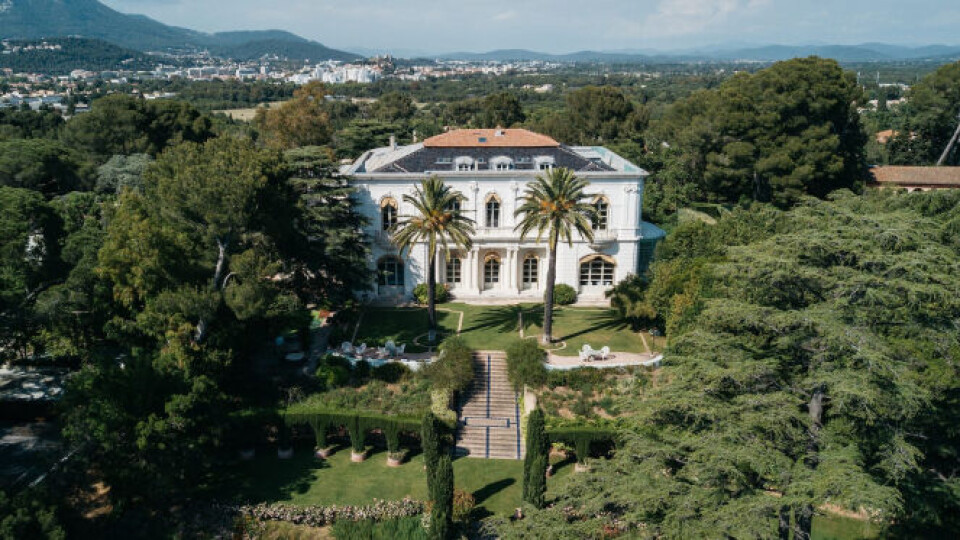-
New rules lower aid for home solar panels in France
Installation bonuses have also been cut as government looks to promote ‘self-consumption’ of power
-
Graph: How do French electricity prices compare with other EU countries and UK
Costs have steadily risen across the last decade
-
Can neighbour force us to put fence up in French garden?
Rules on undergrowth clearance and habitat protection come into play
Downton Abbey’s new film puts French locations in the spotlight
A second film based on the popular TV series is out today, with part of it shot in a villa in southern France. We explore the property and explain how you could get your home on the silver screen

The second movie based on the Downton Abbey upstairs/downstairs television series, which hits French cinemas today (April 27), was partly filmed in a fancy French villa once used as a holiday colony for the boisterous children of railway workers.
Called Downton Abbey: A New Era, the film is set in the 1920s and sees the rich Crawley family and their retinue of servants head to the south of France to uncover the mystery of a property newly inherited by the dowager countess (played by Maggie Smith).
Filming took place in the sumptuous Villa Rocabella, owned since 2019 by multi-millionaire Jean-Baptiste Rudelle, who bought it when it was put on the market for €14million.
Before Mr Rudelle – one of the co-founders of French firm Criteo, which invented the system whereby computer cookies allow advertisements to follow you around as you surf the web – the villa was owned by interior designer Patrice Nourrissat.

The filming took place on French Villa Rocabella. Pic: La Rocabella, 2021
He bought it in a run-down state after it had been used as an SNCF holiday colony for 50 years, and spent 10 years renovating it.
French actress Nathalie Baye will also star in the film, which is released in the UK two days after France, on April 29. Ms Baye, perhaps known to English-speakers for playing Paula Abagnale in Steven Spielberg’s film Catch Me If You Can, is a household name in France and was the partner of Johnny Hallyday for several years in the 1980s.
Villa Rocabella, set in three hectares of land with a path down to a private beach, is situated to the east of Toulon in Var, and has provided the location for several French films, including 2015 thriller Un homme idéal.
“There’s a strong demand for rental film locations”
With around 200 movies made each year in France, there is a steady demand for houses to be used for sets. Locations are often chosen by word of mouth, but there is one big, state-sponsored web platform where people looking to rent out their properties to film and TV companies can register. Run by the Commission Nationale du Film France (CNFF), it allows owners to post photos of their property anonymously and for free.
If they catch the eye of location scouts, they contact the commission, which then puts the two parties in touch. The site warns, though, that it can take years for a property to be seen by a producer.
There are a handful of commercial sites which operate in a similar fashion but Occitanie Films, which was set up by the regional council to promote film-making and now has a staff of five people looking after locations, recommends the CNFF site.
Marin Rosenstiehl, who heads the location-finding unit, told The Connexion: “There is very strong demand in France at the moment.
“You also have series from platforms such as Netflix, Amazon and Apple, who are planning to spend €300million in France this year.”
He said spacious rooms are a big plus: “Even large rooms quickly look small with a film crew in them.”
Prices vary enormously – anecdotal stories in Charente are of around €1,000 for two days for a modern gîte used for scenes in a popular French police drama. The tale goes that the owner is still trying to scrub the fake bloodstain from a treasured rug.
Mr Rosenstiehl said prices for large villas by the seaside could be €20,000 a day or more. “I hesitate to give any guidance as there are so many variables, but for a smaller property think more like €1,000 than €5,000,” he said.
Read more:New film 'The Last Duel': Do you recognise these French locations?
“A lower price means, too, that there is more chance another film will be interested. It is a gossipy industry and word of mouth does play a role.”
Having a film crew in place can be a shock for owners, which is why most prefer to be absent.
Before the crew arrives, a full inventory of the property is taken, and decisions made as to which rooms and furniture, if any, will be used.
Production companies have their own insurance in case of damage, but Mr Rosenstiehl said it is rare for there to be problems.
For feature films, the crew and cast can number between 50 and 100, and large vehicles will also need to be parked on or around the property. As well as the parts of the house where filming is taking place, crews often need access to water and power points for make-up rooms.
“It is invasive, but most people are thrilled, not only by the financial side of things, but by being part of the magic of cinema,” said Mr Rosenstiehl.
“We can also stipulate that the location is not publicised, so that owners will not have tourists coming to look at their house for years afterwards.”
Related stories:
The best film locations in France
Do you learn French with French films or TV shows? Here are three tips
























